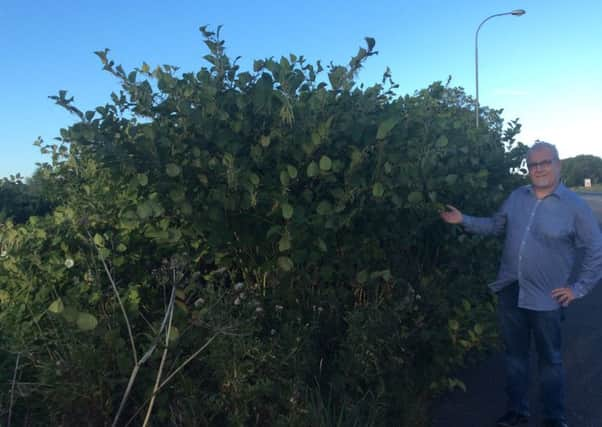Fears of Japanese Knotweed


Sinn Fein Councillor Liam Mackle said the notorious weed appears to be spreading along parts of the Portadown Road in Lurgan.
“Japanese Knotweed can have a huge impact on the foundations of buildings and in severe cases can render a property unsaleable,” said Cllr Mackle.
Advertisement
Hide AdAdvertisement
Hide Ad“This growth of an imported and very difficult weed seems to be out of control on the Portadown Road.
“It is particularly concerning as it is very close to a number of housing developments, including a site directly opposite which is currently being prepared for housing,” he said.
“This weed, if left untreated, will continue to spread and can impact adversely on the foundations of buildings,” said the Lurgan councillor.
“There have been many cases across the north where residents have suddenly discovered that their properties cannot be sold due to the presence of this plant.
Advertisement
Hide AdAdvertisement
Hide Ad“I will be endeavouring to discover who is responsible for this land and will contacting environmental health to see what can be done to control this growth.”
A spokesperson for Armagh City Banbridge and Craigavon Council said: “There is currently no legal requirement for a landowner to control or remove existing established areas of Japanese Knotweed from their own land.
“However, the spread of Japanese Knotweed from one property to another is a civil matter between landowners.
“If landowners would like to remove this type of plant, Council or the NIEA may be able to give them some advice regarding its treatment and safe removal - its removal and disposal is regulated under the Waste and Contaminated Land (NI) Order 1997 and by the Waste Management Licensing (NI) Regulations 2003.”